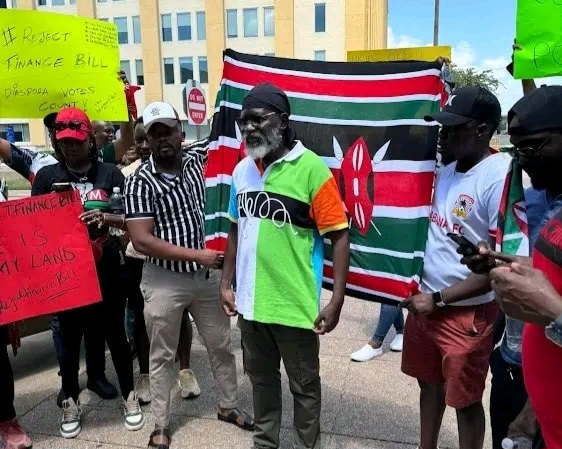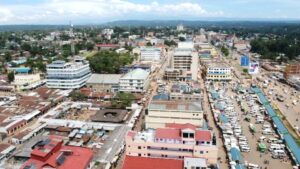Kenyans in Diaspora Protest Against Finance Bill 2024

By Baraka Simba
In response to the escalating tensions surrounding Kenya’s Finance Bill 2024, Kenyan citizens living abroad have united in protest to amplify their voices on crucial issues affecting their homeland.
In Washington DC, outside the Kenyan Embassy, a passionate gathering of Kenyan expatriates raised their voices in dissent against the government’s recent financial policies. Purity Mwamoyo, a resident of the United States, emphasized the resolute stance of the diaspora community: “We are here not to negotiate but to demand that our concerns be heard loud and clear. We adamantly reject the finance bill and demand transparency in Kenya’s governance, particularly in tackling corruption.”
Central to the diaspora’s concerns is the alleged inclusion of undisclosed provisions within the bill, notably a proposed 16% tax increase on remittances—a lifeline for many families back home. Valentine Githae, echoing the sentiments of many, expressed disillusionment: “We send money to support our families and country, but these taxes only exacerbate the challenges caused by ineffective leadership.”
Criticism has not been confined to financial measures alone. Many expatriates voiced disappointment over what they perceive as unfulfilled promises from Kenya’s leadership, citing increases in taxation on essential goods despite campaign assurances to the contrary. Former human rights activist Maina Kiai drew parallels to historical protests: “From ‘Saba Saba’ to now, the spirit of activism remains strong. We will continue to advocate for accountability and justice.”
In Dallas, Professor George Wajakoyah rallied fellow Kenyans, decrying the implications of the finance bill on future generations. “If our leaders betray our trust with such measures, we risk the future of our country,” he asserted, underscoring widespread discontent among diaspora communities.
The outcry from Kenyans abroad underscores a growing international scrutiny of Kenya’s governance and economic policies. As the nation grapples with internal dissent and external critique, all eyes are on the government’s response to these widespread protests.







